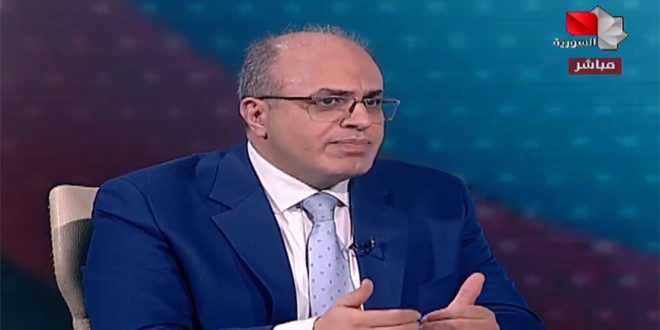Minister of Economy: Supporting production process and encouraging investment are among government’s priorities
Minister of Economy and Foreign Trade Muhammad Samer Al-Khalil affirmed that supporting the local production process and encouraging investment in all fields is a priority for the government, despite the damage caused to the economic structure as a result of the unjust war that targeted Syria for more than 10 years.
In an interview with the Syrian channel Wednesday evening, Khalil underlined the importance of the decisions issued by the government during the last period with the aim of supporting local production, which is the main protector of the economy and the Syrian pound. He highlighted the government’s constant endeavor to reduce the deficits of the state’s general budget, indicating that the consequences of the devastating earthquake that struck the country on the sixth of February delayed the completion of some measures to enhance the productive reality, especially the industrial sector.
Al-Khalil noted that the recent changes in the exchange rate of the Syrian pound are not justified, and that the government will work to address it. The decisions issued regarding adjusting the prices of oil derivatives do not raise the exchange rate and that the main problem is represented by the consequences of terrorism and the rumors of war that the countries hostile to Syria continue to broadcast, which play a major role in speculation on the Syrian pound.
Al-Khalil said: “Oil derivatives are greatly draining the mass of subsidies, despite the fact that the majority of countries do not provide subsidies for gasoline, because subsidies are the achievement of justice, and therefore addressing the imbalance in it is a necessary and obligatory matter, not an option.”
Al-Khalil asserted that the subsidized materials were previously available locally, but today they are imported, which called for reviewing the lists of imports and removing materials from them to reduce the demand for foreign exchange.
Al-Khalil indicated that the current salary tax is exempted at fifty percent, but there is a draft law in the People’s Assembly to raise the minimum tax exempted from the start-up salary.
Inas Abdulkareem

